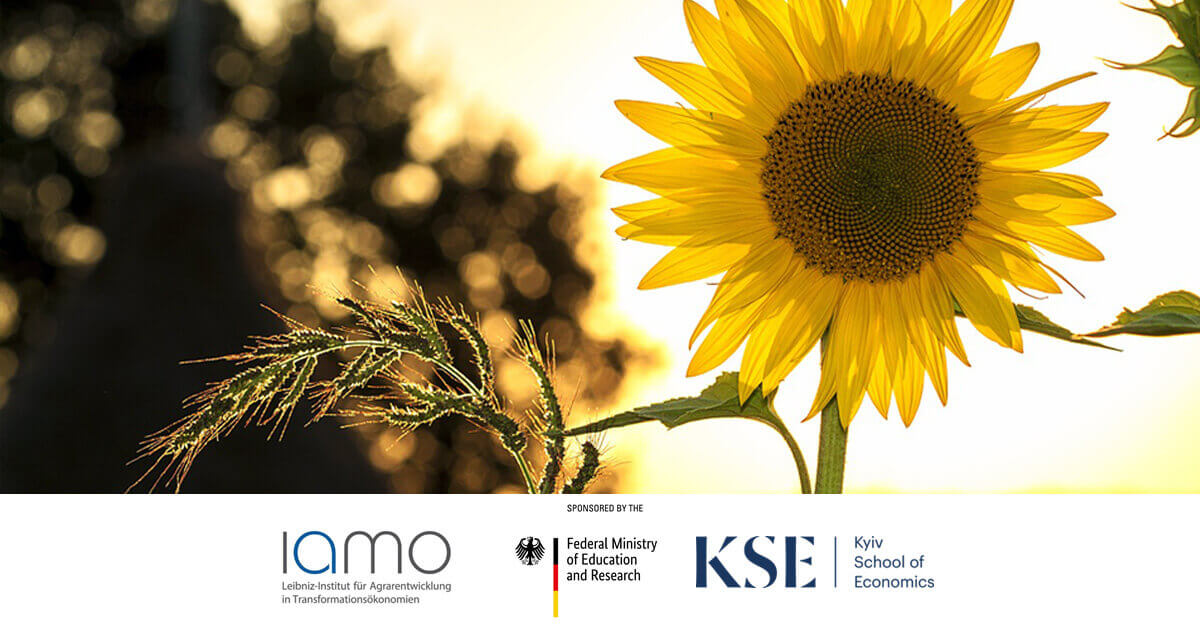- Kyiv School of Economics
- Private: Calendar
- PhD Summer School in Agricultural Economics
Description

In the frame of the pilot project for the sustainable internationalization of Ukrainian research structures in the context of the globalization of the Ukrainian food sector (UaFoodTrade)
Course Announcement
Household Behaviour: Theory and Applications
Organizers: Kyiv School of Economics (KSE), Kyiv, Ukraine and Leibniz Institute of Agricultural Development in Transition Economies (IAMO), Halle, Germany in cooperation with Institute of Agricultural and Nutritional Sciences, Martin Luther University Halle-Wittenberg (MLU), Halle, Germany
Time period: From 8th to 13th of October, 2018
Location: Kyiv School of Economics (KSE), Dmytrivska St, 92-94, 01135, Kyiv, Ukraine
Lecturer: Prof. Dr. Michael Grings
Course description: The course addresses major dimensions of household behaviour from an economic point of view with particular focus on the specifics of agricultural households. In a first step the most important concepts for the analysis of household demand are discussed. Additional dimensions of household behaviour are labour supply and household production, which, in a second step, are considered in the framework of agricultural household models. The interaction of consumption, labour supply and agricultural production spheres are then analyzed in the context of separable and non-separable household models.
Course outline:
- Introduction;
- Overview of the course;
- The role of theory and models in scientific research.
- Fundamentals: household demand and supply;
- Theory of household demand and labour supply (Basic concepts; Dual representations of preferences; Labour supply);
- Agricultural production and factor demand (Basic concepts; Representation of production technology).
- Agricultural household models;
- The theory of the agricultural household: Overview;
- Separability of production, consumption and labour supply decisions;
- Nonseparability: Missing markets;
- Discussion of empirical studies.
Teaching methods: Lectures (75%), classroom exercises and group work (25%)
Grading: For a certificate of successful participation, participants are required to pass a written final test.
Credit points: 3 CP
Language: English
Requirements: Outstanding Master’s degree or Master’s students in the final year of a master’s programme in agricultural/food economics, general economics, or related fields. Participants should have a good knowledge of the basic microeconomic concepts (theory of the household and the firm) and a basic knowledge of econometrics.
Application: Electronic applications (in English language) should be submitted as one pdf-file (no larger than 2 MB) to Ms. Valentyna Marusiak ([email protected]) and should contain the following documents: (1) Curriculum vitae, and (2) Letter of motivation (up to 1 page).
Applications will be considered until September 25, 2018
Additional information: For more details please visit the website of the UaFoodTrade or contact Dr. Oleg Nivievskyi – [email protected]
Course cost: Participation in the course is free of charge. The participants cover their travel and accommodation costs themselves.
Funded by: German Federal Ministry of Education and Research (BMBF), Germany.
